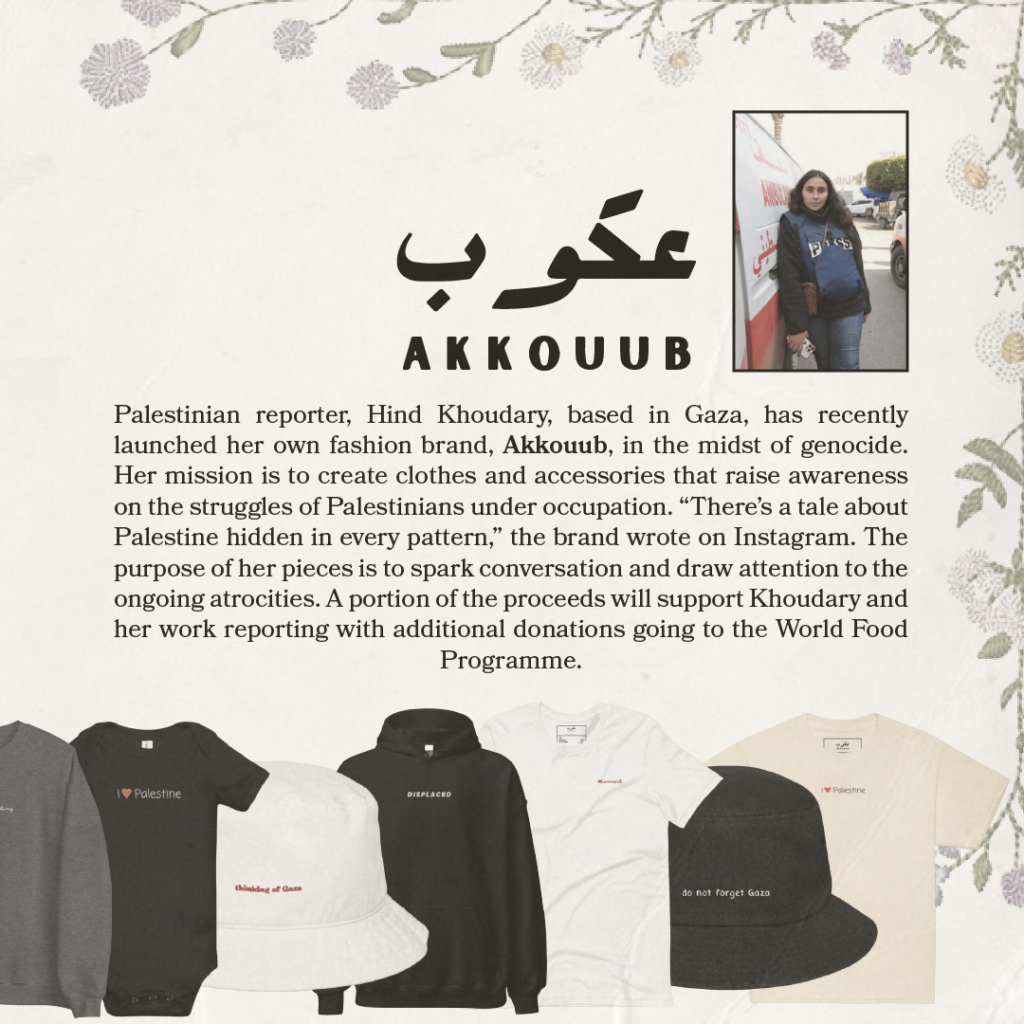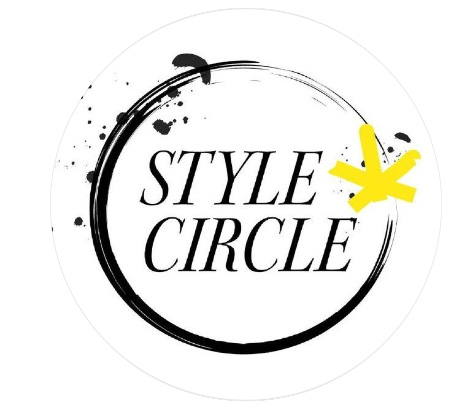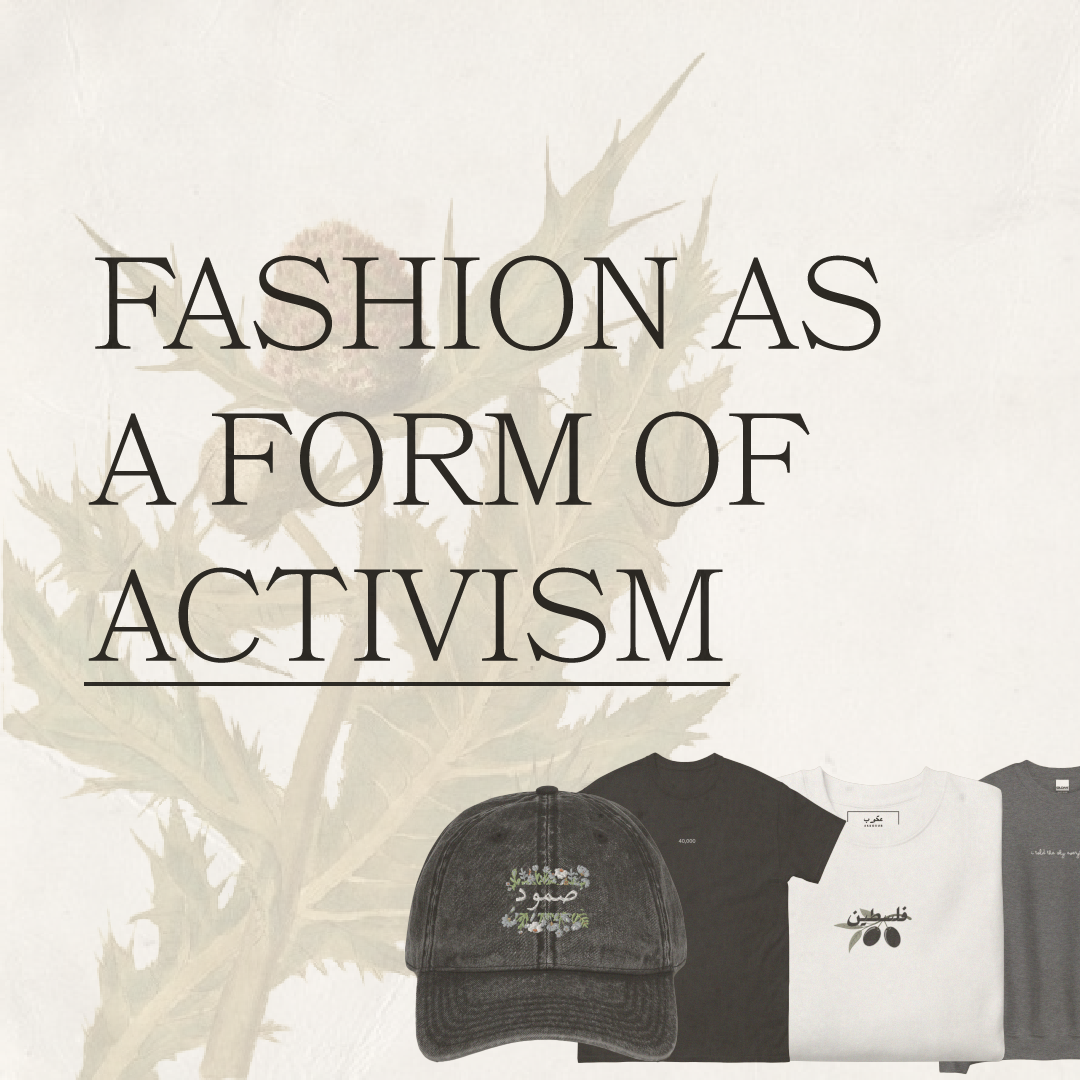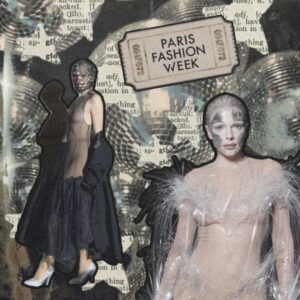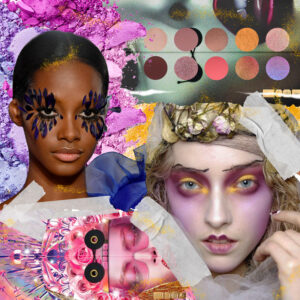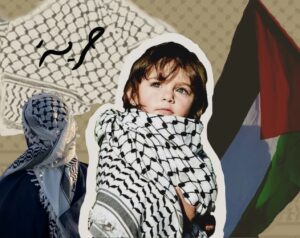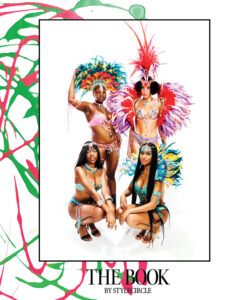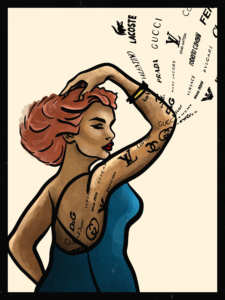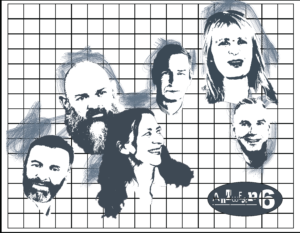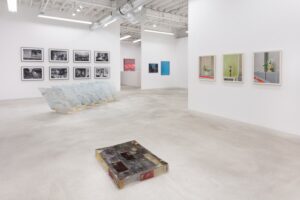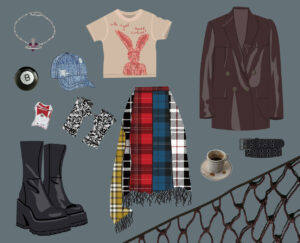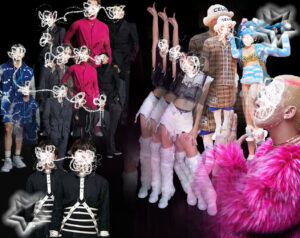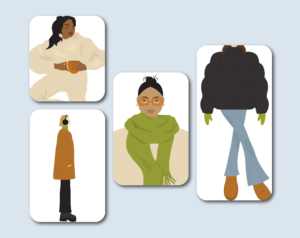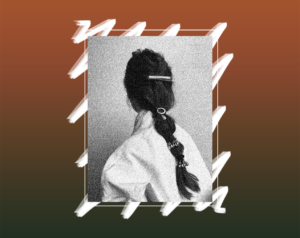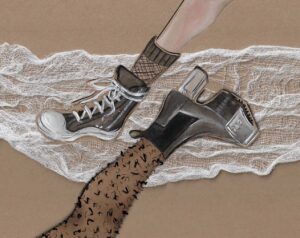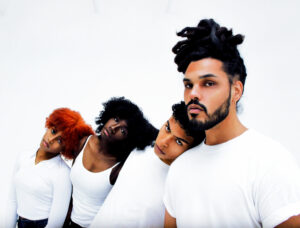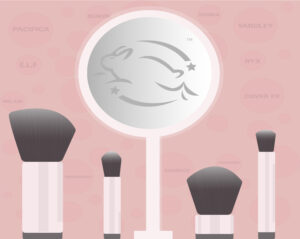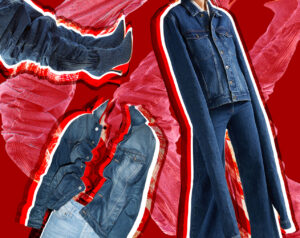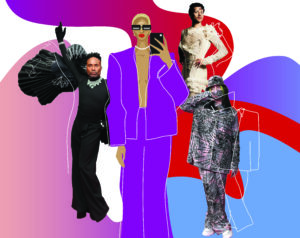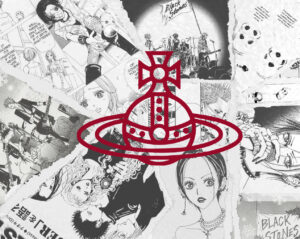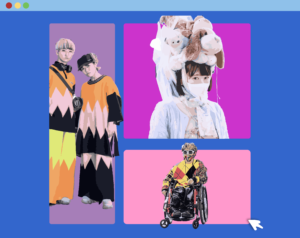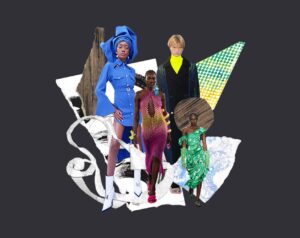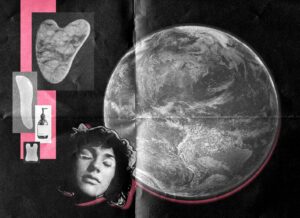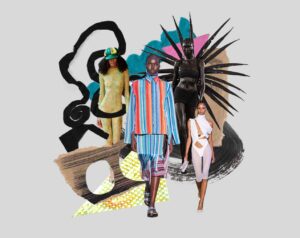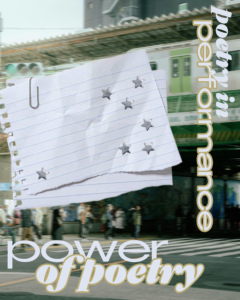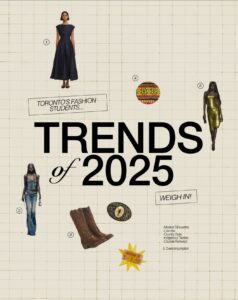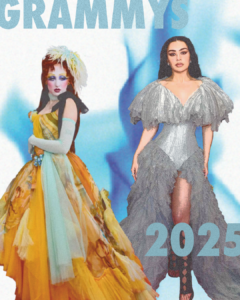AUTHOR: Lama Alshami
GRAPHIC DESIGNER: Jasmine Natan
COPY EDITOR: Eishvinder Gill
On Sept. 27, Hind Khoudary, a Palestinian reporter living in Gaza, launched her fashion brand, Akkooub.
The brand describes themself as “an eco-friendly Palestinian brand with a strong sense of identity, inspired by the lives of Palestinians living under occupation.”
In a statement posted to Instagram, they said their purpose is to share Khoudary’s story with the world and to dare to imagine a future, even in the face of uncertainty.
Her first collection consists of sweaters, hoodies, hats, caps, bags, and even onesies for babies.
All her apparel includes messages referring to Palestine, more specifically the ongoing genocide in Gaza.
Some clothing features the words, “I love Palestine,” while others say, “Do not forget Gaza.”
One cap has the word “صمود”, meaning steadfastness. It’s a concept in Arabic used to describe the Palestinians’ everyday resistance against the Israeli occupation. While mainly ideological, it can manifest into physical forms as well. Remaining on Palestinian land, investing in education, keeping Palestinian art such as tatreez (traditional Palestinian embroidery) alive and building houses after constant demolition by the occupation are all forms of steadfastness.
What stands out the most however is a black shirt with the number 40,000 written in small white text in the middle. What may seem like a small detail on a plain shirt is actually the reported death toll from the Palestinian Ministry of Health as of August 2024. A number that according to the Lancet could be much higher due to the thousands of dead civilians who are unaccounted for under the rubble and those who died indirectly due to the destruction of hospitals and the lack of food.
Khoudary designed this collection alongside her work reporting as a journalist amidst endless bombardment.
“Before the war began, Akkooub was Hind’s dream,” the brand wrote.
Her mission is to create clothes and accessories that raise awareness of the struggles of Palestinians under occupation. “There’s a tale about Palestine hidden in every pattern,” the brand wrote on Instagram.
A portion of the proceeds from the clothing will support Khoudary and her work reporting with additional donations going to the World Food Programme.
However, this has been in the works long before the Israeli attacks on Gaza.
On Jan. 31, 2023, the brand posted on Instagram that their first collection will be going out soon and in February of 2023, they posted a meet the team post. But afterwards, the account was completely silent for more than a year.
It wasn’t until Sep. 2024 when Akkooub would announce their new collection.
The brand asked everyone to send pictures of their orders to Khoudary, “It will make her so happy, especially since she’s still in Gaza and unable to wear her own designs.”
To not even have access to her finished designs shows Khoudary’s commitment to her cause. She designs out of love for her culture and people.
To release a collection of clothes while undergoing airstrikes, starvation, and witnessing the murder of loved ones is a testament to the resilience of Khoudary and the thousands of Palestinians in Gaza.
Her designs and her journalism are both ways she remains steadfast amidst the dispossession of her people.
Her pieces reflect her dedication to draw attention to Palestine through a multitude of ways.
Khoudary, who is only 29 years of age, has been crucial to providing coverage on the daily massacres committed by Israel against innocent civilians.
She has reported for Aljazeera English, Anadolu Agency, The New Arab, and the Middle East Eye, among other publications.
She also joined the United Nations World Food Programme last November to provide food assistance to families in need, helping raise funds to deliver more than 409,000 meals to families in Gaza.
She had the opportunity to leave Gaza, but ultimately decided to stay in her homeland to report on the assaults witnessed daily.
The intersection between Khoudary’s journalistic work and her venture into fashion is not uncommon.
Fashion, politics, and activism all play a crucial role in social movements. Fashion activism, a term coined by Lebanese-Canadian fashion designer, Céline Semaan-Vernon, is a means of using fashion and beauty to advocate for social and environmental change. Fashion provides designers the artistic freedom to openly express themselves and their cause.
Art can be a powerful form of political protest, with designers free to imbue whatever message they desire.
For Khoudary, her interest in design came from her mother who introduced her to Palestinian embroidery when she was 13.
The name of the brand, Akkooub, comes from the Arabic word for the wildflower, Gundelia. Gundelia is an edible plant native to the Middle East that has oftentimes cost Palestinians their lives for picking it.
In 2014, Israeli soldiers shot and killed a 14-year-old Palestinian boy who crossed the separation barrier in the West Bank to harvest the plant. The barrier was built over the farmland of native Palestinians, forcing them to cross it in order to provide for their families.
Even though the boy posed no danger, no one was held responsible for his murder.
Khoudary hopes her pieces will spark conversation and draw attention to the ongoing atrocities in Palestine.
